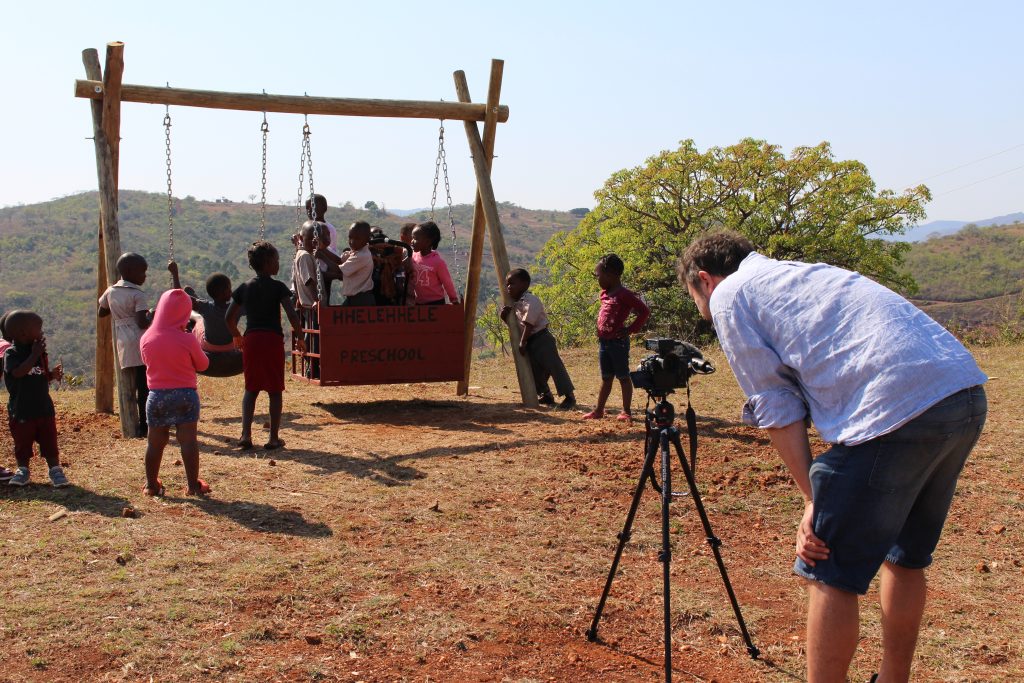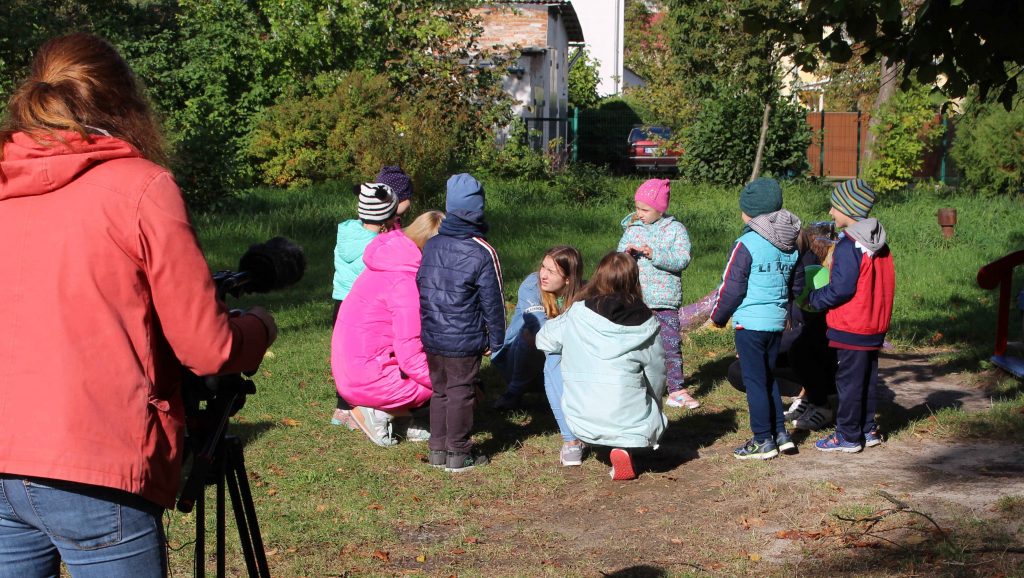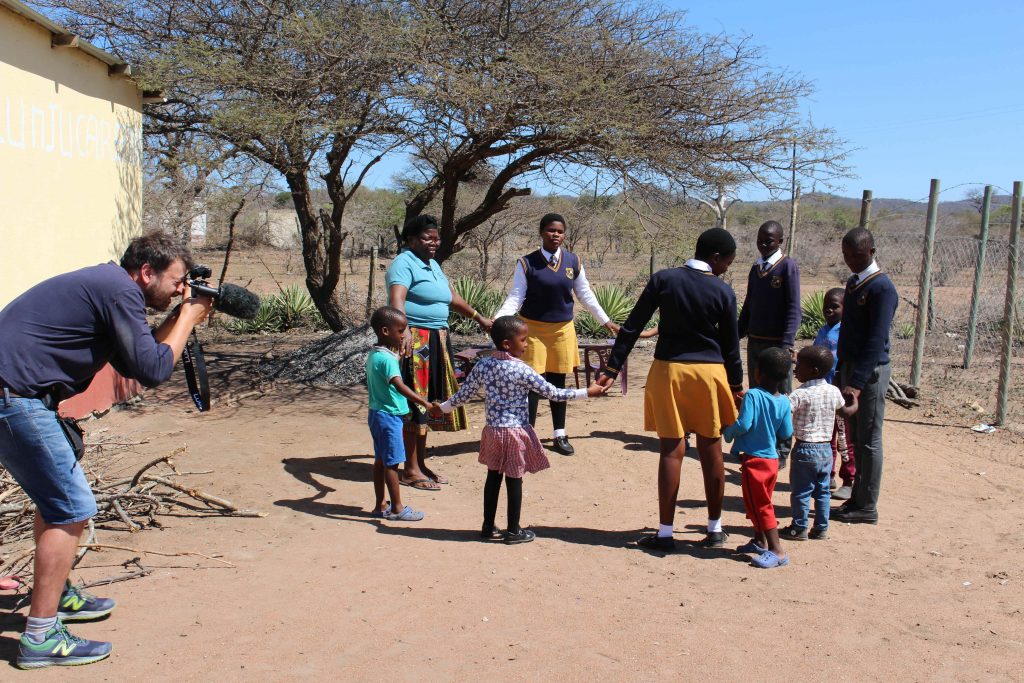Each stage of the project will be documented, so you can keep track of our progress.
Update 10 – everything’s done! (February 2022)
During 2020 and 2021 we used a follow-up grant from OSF to develop 4 online courses based on the Inclusive Beginnings video training set. Of course, the COVID-19 pandemic caused lots of challenges and delays, but the online courses are now available – free-of-charge. Visit EENET’s LearnLink platform to sign up for any of the 4 new courses. Here’s a brief introduction to the courses.

Update 9 – * Launch date set! * (June 2020)
Join us on Thursday 30 July 2020 – 14:00-15:30 (UK time) to celebrate the completion of the new videos.
Since we can’t hold a real launch event this time, we’ll be launching the new videos via a webinar. There will be short presentations from Duncan Little and Dr Karen Khayat in EENET, and from Nafisa Baboo (Light for the World) and Dragana Sretenov (OSF). We will showcase some of the video content, and there will be a chance to ask us questions about the new video-based training resource. Find out more about how to register for the webinar.
Update 8 – editing almost complete (May 2020)
At the start of 2020 we were making good progress with the film editing. Then COVID-19 arrived! Not surprisingly this led to delays and changes of plan. All EENET’s other projects needed to be drastically revised (lots of budget revisions, proposals and meetings!). Like millions of others, our ECE film team members faced the personal challenges of living and working in the lockdown situation and home educating children. The editing stage progressed slowly during March and April. We had also planned to work with a partner in Palestine to shoot some additional footage and interviews, but school closures and social distancing prevented this. We can no longer hold a launch event in July but are planning a virtual launch instead. Despite the challenges, the two films are progressing well. First edits are complete, second edits are under way, and the training and advocacy manuals to accompany the films are being written.

Update 7 – we’re ready to start editing (November 2019)
After a very intensive 4 weeks in September, the filming in Swaziland and Ukraine was completed. The next step was to review and organise all the footage using the storyboard (content outline). Our film editor Jo starts this month to prepare the first draft cuts which will probably be ready for us to review in early January. The editor’s task is particularly challenging because the footage is in several languages. There’s lots to do before we launch the new videos in mid-2020, but we are on schedule!

Update 6 – filming in Ukraine (late September 2019)
We have been filming in Ukraine for the last week or so. Our team had a few extra challenges this time – some luggage didn’t arrive and they had to do some urgent shopping for clothes and a camera tripod! Everything was soon back on track. Photos from the schools where we are filming will be coming soon.
Update 5 – filming starts in Swaziland (early September 2019)
Filming is now well underway in Swaziland. One of the exciting aspects of this film-making project is that we are not just documenting good ideas to help early years educators become more inclusive. We are also working with youth from local secondary schools. We are building on the lessons learned in our Listening to Young Voices project, and now older learners in Swaziland are working with pre-school learners to help them talk about their experiences of education.
This approach to facilitation works well at stimulating young children to express themselves, and it helps the older learners develop different skills. It is very important to us that when we are filming we are not just taking away footage, but are offering learning opportunities at the same time.

Update 4 – second country confirmed (July 2019)
We are very excited to announce that the second country selected for filming our new inclusive early childhood education videos is Swaziland! Our film producer Duncan has just completed a scoping visit. He visited several ECE settings that are working hard towards inclusion, and met some fantastic children, staff and parents. The experiences we’ll be able to film in Swaziland will offer an interesting contrast to those captured in Ukraine. However, we think there will also be a lot of similarities both in the challenges faced and the solutions being found. Now the intensive logistical preparations start for filming in the two countries.
Update 3 – scoping visit (June 2019)
We will be filming in two countries. The first confirmed country is Ukraine. We filmed there for our previous training video package (‘An Inclusive Day‘), and last year we worked with Ukrainian young people to carry out action research with kindergarten children. We are therefore delighted that we will be returning to Ukraine to document more experiences and ideas relating to inclusive early childhood education. Our film producer, Duncan, has recently carried out a scoping visit to plan which locations in Ukraine he and the film crew will visit later this year. A scoping visit to the second country will happen in a couple of weeks, so watch this space for more news.
Update 2 – storyboards (May 2019)
Making a film with a limited budget is challenging and requires a lot of careful planning and preparation. One of the first tasks in our new project to make some inclusive early childhood education videos is therefore to write some storyboard outlines.
The storyboards describe what we want to film – which topics we want to cover and what the main facts or arguments are. We also brainstorm ideas for the sort of footage or images that might help us illustrate these facts and arguments. Because we are making a training video and filming in real-life schools and communities, our storyboards are a bit like wish-lists, showing all the things we hope we can film. It’s not like making a fictional movie where the director can make anything happen, using actors and computer-generated images! In reality we won’t be able to find and film all of the experiences on our wish-list, but we have some extra ideas up our sleeve this time to help with filling gaps.
Once the storyboards have been drafted, we will carry out scoping visits to two countries, so watch this space for news about which countries have been selected.
Update 1 – consultation meeting (April 2019)
A few weeks ago we held a small online consultation meeting with diverse stakeholders who have experience in early childhood development and education in Africa, Asia, the UK and Europe. We asked participants to reflect critically on our existing video-based teacher training resource (‘An Inclusive Day’) and to help us think about what additional or different messages are needed for a training resource aimed specifically at inclusive early childhood education practitioners.
Through the meeting and written inputs we received lots of fantastic ideas – enough to make 10 more films! We have been analysing all the ideas, ready for the next step – developing storyboards.
What is the most important message you think we should include in a video about inclusive early childhood education? Tell us your ideas!
